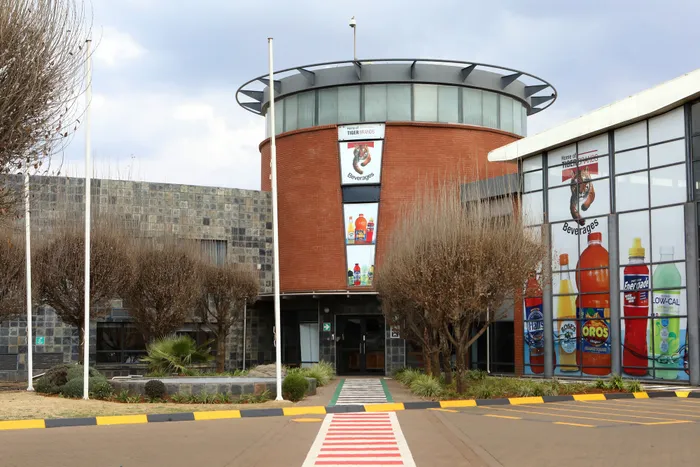Tiger Brands announces special dividend and strong interim results
FOOD PRODUCTION

Tiger Brands shareholders benefited from a share buyback program started in the first half, and as at March 31, 2025, R500 million was used to repurchase 1.8 million shares. The share buybacks would continue as the opportunities arose, the company said.
Image: IOL file
Tiger Brands’ share price gained 5.7% on Wednesday, continuing a year-long rally in the price after the food producer declared a whopping 1 216.00 cents per share special dividend for the six months to March 31, on top of the ordinary dividend.
The share price was trading at R340.67 on the JSE on Wednesday around midday, a price that had risen steadily by 77.4% over 12 months.
The ordinary interim dividend came to 415 cents a share, up 19% compared with the interim period in 2024. The total amount to be paid out to shareholders via the special dividend is R1.8 billion.
Shareholders would also benefit from a share buyback program started in the first half, and as at March 31, 2025, R500 million had been deployed to repurchase 1.8 million shares. The share buybacks continued after the end of the interim period, and by May 9, 2025, 4.5 million shares had been repurchased for a cumulative R1.2bn.
“We paid out the special dividend from two main considerations. The first was cash from our portfolio disposals, and the second was our overall significant improvement in operating cash flows arising also from our better performance,” chief financial officer Thrushen Govender said in an interview.
Improved working capital contributed a cash inflow of R1bn in the first half, compared to an outflow of R4bn last year. Consequently, net cash from operations increased to R3.4bn from R0.8bn at the same time last year.
This, combined with proceeds from the disposal of non-core operations, resulted in the net cash position improving by R8.6bn to R5.9bn, which was well up from a net debt of R2.7bn at the same time last year.
Govender said the share buybacks would continue if opportunities arose, and further special dividends might also be considered given the business units identified as non-core that might be disposed of, although nothing was cast in stone yet, as the non-core business units "are certainly not fire-sales.”
The three companies were the chocolate business within the Snacks Treats and Beverages segment, the King Foods sorghum business, and the Chococam subsidiary in Cameroon Categories.
The strong results arose from a focus on driving value for consumers, executing strategy, improved logistics optimisation, value engineering, and factory efficiencies. The result was despite the constrained consumer environment.
Overall revenue was ahead of the prior year by 2% at R18.5bn, driven by 2.1% price inflation and relatively flat volume. Govender said the volume growth followed years of volume decline and was cause for celebration. He said they were on track for continued growth in the second half.
“Our revised strategy and operating model, which places the consumer at the centre of everything we do, ensures that we drive affordability consistently across the portfolio,” Tjaart Kruger, the CEO of Tiger Brands, said in a statement.
The volume growth was driven by Tiger Brands’ Culinary Business Unit, through deliberate volume recovery initiatives, as well as notable recovery in Milling and Baking, and Snacks, Treats and Beverages.
The sale of Baby Wellbeing generated a R455m non-operational taxed profit, while the after-tax profit on the disposal of associate Empresas Carozzi. in the first half amounted to R304m.
The total proceeds from these transactions was R4.4bn, with the remaining R0.6bn received in April 2025.
In May 2025, Tiger Brands entered into an agreement to dispose of Langeberg & Ashton Foods. As part of the sale, the group would invest R150m towards a Community Trust that will benefit the Langeberg community through socio-economic development initiatives, and which will hold a 10% stake in the new company owning Langeberg.
Tiger Brands has also made progress on the sale of its Randfontein Maize Milling operations. The maize category was identified as non-core due to the evolution of the local maize market competitiveness and the increasing establishment of regional millers.
The disposal of the wheat mill would also facilitate a simpler and expedited transaction as they were located on the same manufacturing site.
BUSINESS REPORT
Visit:www.businessreport.co.za.